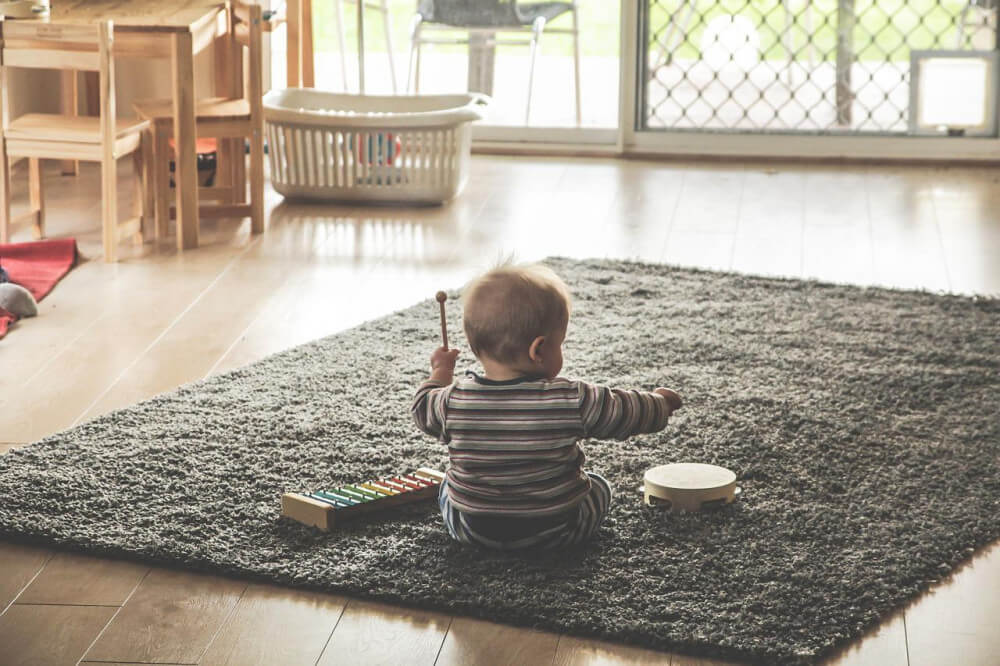“The attention and environment you provide, shape your child’s brain development for life.”
One thing that excites the parents of children with age 2 years and older is they begin to learn more and more about the world around them. They have started to read, write, count and understand their surroundings better. .
It’s important to provide your child with a dynamic atmosphere that will encourage learning. Children at this age are very active and mobile, which makes it easier to let them engage in activities that aid in teaching your child in an enjoyable way.
This is the age where kids develop their ability to focus, remember information and develop their thinking skills. Just like that kid from the Bournvita ad, who asks all the interesting questions to her mom. Further, kids at this age also learn to understand the relationships between ideas, grasp the process of cause and effect and improve their analytical skills. All of these developments are a result of cognitive skills. But, before we learn cognitive development activities, let’s dig into the concept and find its benefits.
Cognitive Development and Its Benefits
The ability of a child to reason and think is referred to as “cognitive development.” This development might differ across kids of various ages and emphasize how certain abilities and intellectual traits develop. Children’s cognitive growth is important for processing knowledge and self-awareness. Both of these are necessary to comprehend the thoughts and feelings of others. It contributes to a child’s ability to compare and contrast concepts, form their own opinions, and think through possibilities. Benefits of Cognitive Development are as follows:
- Encourages lifetime learning: Cognitive learning helps students to learn by doing, which will benefit them later in life when they need to make significant decisions by weighing all the advantages and disadvantages.
- Enhances knowledge: Cognitive learning enables kids to understand concepts more comprehensively and to gain a greater understanding of various contexts and circumstances.
- Increases self-assurance: Children with stronger comprehension abilities and more information will approach life with more zeal and assurance, which will help them succeed in their pursuits.
- Enhances memory: A greater comprehension of the subject helps students remember the information they learn for longer periods, thereby enhancing their memory.
- Fosters a lifetime passion for learning: Students who receive a concept-based education are motivated to keep learning new things and acquiring new skills. Success in the workplace depends on both of these factors.
Now that you know what cognitive development is, then let us look at some exercises to promote cognitive development with your preschoolers.
8 Activities for Cognitive Development of Preschoolers

1. Interactive way of improving counting skills
Grab several blocks, and write the numbers one by one in sequential order using a marker. Your little one can learn his numbers in a fun way by vertically stacking the blocks together in the right order, measuring objects like books, or both
2. Develop sensory play with patterns
Add a few drops of food coloring and essence to the salt in a zip-lock bag, close the bag, and shake it until the color is uniformly distributed ( If you find that the salt has become lumpy or too moist, then pour it out on a plate and let it dry in the sun a couple of hours). Put a tray with the colored salt in it. Now, to assist your kid in learning his alphabet, have him practice the shapes in the tray by making the pattern in the colored salt with his finger. If he chooses, he may also create drawings or random patterns.
3. Understand the cause and effect of button toys
Understanding the cause-and-effect phenomenon is crucial to your toddler’s cognitive development. A fun method to teach your child cause and effect is a simple button toy that performs an action, lights up, or emits sound.
4. Boost imagination with art and creativity

Children have vivid imaginations. These innate qualities can be developed further through art & crafts. Make a small animal or dog out of playdough, and instruct your kid to imitate you. Your kiddo will eventually create things they notice in their surroundings after a few attempts. Asking them to color or sketch will demonstrate a similar response. Make use of vibrant colors so that your child finds it appealing.
5. Understand instructions through a scavenger hunt
Two to three years old who understand directions will enjoy this exercise. Set up a treasure or scavenger hunt for your toddler, and treat them as a reward.
6. Sing along
Most of the cognitive and sensory-motor development is enhanced by music. Teach your kid to sing along with you. They will be entertained while having their social and emotional abilities developed.
7. Make stacking a practice
Allow your child to arrange the building bricks any way they wish. It gives children the freedom to dream and be inventive. You can play stacking games with household items as well.
8. Let them assist you with household chores
Playing games with your toddler might teach them new things. But along with that you should give your kid the opportunity to assist you with daily tasks like cleaning and arranging their toys. This will teach kids to follow instructions, increase dexterity, and establish a sense of responsibility.
Thus Concluding,
Your toddler can recognize individuals and comprehend instructions by the age of two. you can help him in mastering basic responses to various stimuli and learn to distinguish between colors. This is an ideal age for toddlers to participate in various cognitive activities and to engage all of their senses. Therefore, by including kids in these educational activities, you will assist them in reaching many developmental milestones and enhance their sensory-motor experiences.





